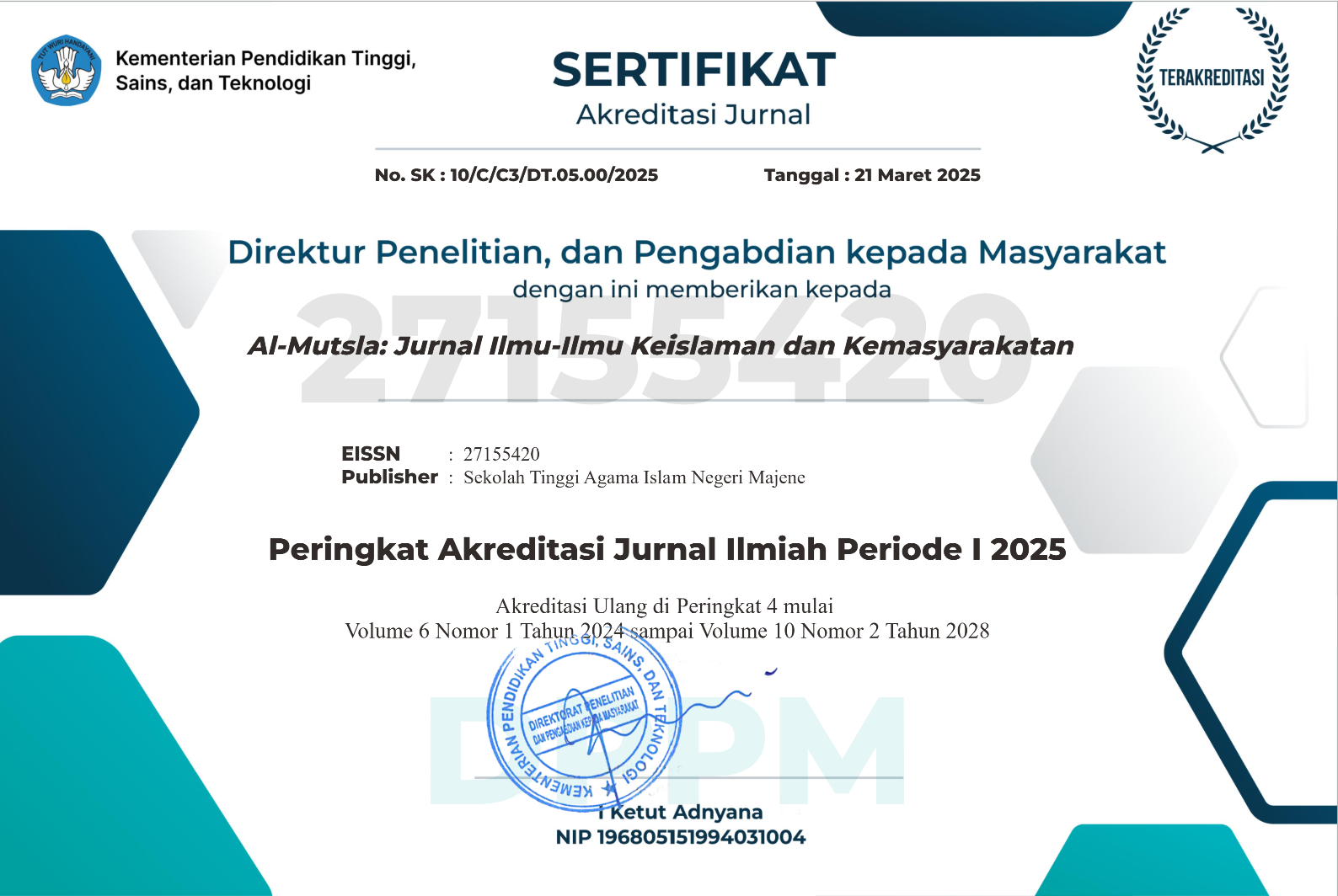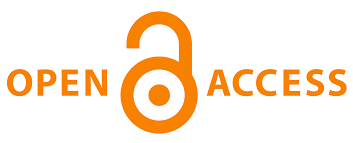The Islamization of Science in the Era of Society 5.0
Study of the Thought of Ismail Raji Al-Faruqi and Syed Naquib Al-Attas
DOI:
https://doi.org/10.46870/jstain.v4i2.356Keywords:
Education, Islamization, Knowledge, Era Society 5.0Abstract
Science is one of the important elements that must be possessed by humans, human development is also never separated from science. The development of science, especially from the west, also requires a filter so that secular values that are not in accordance with Islam can be prevented. The importance of Islamization of science is a main concept that can be a vaccine to prevent negative values that accompany science and can also be a vitamin to increase the spirit of Muslims to always try to develop science.Several Muslim figures who initiated the concept of Islamization of Science, including Syed Naquib Al-Attas and Ismail Raji Al-Faruqi, the two Muslim figures considered the Islamization of science as a solution to the problem of the current dichotomy of science. Especially where we have entered the era of Society 5.0 where the development of technology and science has become a necessity without leaving important human aspects as the main element in that era.As for the use of this research method, it uses a pure library research method with a descriptive analytical approach, namely describing and critically interpreting the meaning of the discussion process so as to make a new idea in the development of science. The purpose of this study is to find a correlation between the Islamization of science in the era of society 5.0 and the study of the concepts offered by Ismail Raji al-Faruqi and Syed Naquib al-Attas. And from the results of this study, it was found that there was a correlation between the Islamization of science in the era of Society 5.0, this was seen in the strengthening of humans as the center of civilization so that the concept of Islamization became a solution to the gap and strengthened human character in particular.
Downloads
References
Ahmad, Ahmad. “Konsep Ta’dib Syed Muhammad Naquib Al-Attas Dan Implikasinya Dalam Pendidikan Islam.” AN NUR: Jurnal Studi Islam 13, no. 1 (2021): 32–50. Accessed September 30, 2022. https://jurnalannur.ac.id/index.php/An-Nur/article/view/98.
Al-Attas, Naquib. Aims and Objectives of Islamic Education. Jeddah: King Abdul Aziz University, 1979.
Al-Faruqi, Ismail Raji. Islamisasi Pengetahuan, Terj. Anas Mahyudin. : Bandung: Pustaka., 1995.
Darani, Nurlia Putri. “Kewajiban Menuntut Ilmu Dalam Perspektif Hadis.” Jurnal Riset Agama 1, no. 1 (2021): 133–144.
Daud, Wan Mohd Nor Wan. The Educational Phylosophy and Practices of Syed Muhammad Naquib Al- Attas Terj. Hamid Fahmi, Dkk. Bandung: Mizan, 2003.
Daud, Wan W.M.N. Filsafat Dan Praktek Pendidikan Syed Naquib Al-Attas. Edited by Hamid Fahmy Dkk. Bandung: Mizan, 2003.
ditpsd.kemdikbud.go.id. “Society 5.0.” Https://Campus.Quipper.Com/Kampuspedia/Society-5-0. https://campus.quipper.com/kampuspedia/society-5-0.
Education), N Septiana - JIE (Journal of Islamic, and undefined 2020. “Kajian Terhadap Pemikiran Ismail Raji Al-Faruqi Tentang Islamisasi Sains.” ejournal.stitmuhbangil.ac.id 20 (2020). Accessed September 30, 2022. http://ejournal.stitmuhbangil.ac.id/index.php/jie/article/view/166.
Al Faruqi, Ismail Raji. Islamization of Knowledge: General Principle and Work Plan. Virginia: International Institute of Islamic Thought., 1989.
Garwan, Muhammad Sakti. “Urgensi Islamisasi Ilmu Syed Naquib Al-Attas Dalam Upaya Deskonstruksi Ilmu Hermeneutika Al-Qur’an.” Substantia: Jurnal Ilmu-Ilmu Ushuluddin 21, no. 2 (2019): 125.
Ghoni, Abdul. “Pemikiran Pendidikan Naquib Al-Attas Dalam Pendidikan Islam Kontemporer.” Jurnal Lentera: Kajian Keagamaan, Keilmuan dan Teknologi 3, no. 1 (2017): 196–215. https://www.neliti.com/publications/177271/pemikiran-pendidikan-naquib-al-attas-dalam-pendidikan-islam-kontemporer.
Iqbal, Abu Muhammad. Pemikiran Pendidikan Islam: Gagasan-Gagasan Para Ilmuwan Muslim. Yogyakarta: Pustaka Pelajar, 2015.
Islam, Universitas, Zainul Hasan, and Genggong Probolinggo. “Implikasi Konsep Islamisasi Ilmu Pengetahuan Ismail Raji Al-Faruqi.” ejournal.unzah.ac.id 3 (n.d.): 2548–4400. Accessed September 30, 2022. https://ejournal.unzah.ac.id/index.php/humanistika/article/view/369.
Ismail Raji al-Faruqi dan Lois Lamya al-Faruqi. The Cultural Atlas of Islam, Edisi Indonesia, Atlas Budaya Islam. Bandung: Mizan, 2000.
Maky, Ahmad Yazid Hayatul. “Nilai Pendidikan Islam Dalam Perspektif Islamisasi Dan Integrasi Ilmu (Ismail Raji Al Faruqi, Syed Muhammad Naquib Al Attas, Amin Abdullah).” Cross-border 4, no. 2 (2021): 732–750.
Muhajir, MSI. “Konsep Islamisasi Sains Menurut Ismail Raji Al-Faruqi.” Paper Knowledge . Toward a Media History of Documents (2014): 200.
Putra, Aris Try Andreas. “KONSEP PEMIKIRAN ISMAIL RAJI AL FARUQI (Dari Tauhid Menuju Integrasi Ilmu Pengetahuan Di Lembaga Pendidikan).” Zawiyah: Jurnal Pemikiran Islam 6, no. 1 (2020): 20.
Sunardin. “Manusia Membutuhkan Agama Di Masyarakat.” Jurnal Kajian Islam dan Masyarakat 4, no. 1 (2021): 13. https://media.neliti.com/media/publications/99550-ID-kebutuhan-manusia-terhadap-agama.pdf.
Syed Muhammad Naquib Al-Attas. Islam Dan Sekularisme. Bandung: Institut Pemikiran Islam dan Pembangunan Insan, 2010.
Azyumardi Azra, “Dari Arabisme Ke Khilafatisme: Kasus Ismail Al-Faruqi” Dalam Pergolakan Politik Islam: Dari Fundamentalisme, Modernisme Hingga Postmodernisme. Jakarta: Paramadina, 1996.
Syed Muhammad Naquib Al-Attas, The Concept of Education in Islam: A Framework for an Islamic Philosophy of Educaton (ABIM, Kuala Lumpur, 1980) Diterjemahkan Oleh Haidar Baqir, Konsep Pendidikan Dalam Islam; Rangka Pikir Pembinaan Filsafat Pendidikan Islam. Bandung: Pustaka, 1984.
Downloads
Published
How to Cite
Issue
Section
License
Copyright (c) 2022 AL-MUTSLA

This work is licensed under a Creative Commons Attribution-NonCommercial 4.0 International License.










